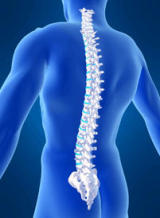Electroneurodiagnostic Technologists in the Operating Room
American Society of Electroneurodiagnostic Technologists, Inc.
6501 E Commerce Ave, Suite 120, Kansas City, MO 64120
Phone 816.931.1120 Fax 816.931.1145 Email info@aset.org www.aset.org
Position Statements
Electroneurodiagnostic Technologists in the Operating Room
Revised, 12-1-98
The goal of monitoring a patient's electroneurodiagnostic data during surgery is to provide the surgeon with information regarding the surgical procedure's effect upon the patient's central and peripheral nervous systems. The expected outcome of monitoring is to preserve or improve the patient's pre-surgical neurological function.
An electroneurodiagnostic (END) technologist, who meets the stated qualifications, performs neurophysiological monitoring in the operating room to assist in assessing the functional integrity of the peripheral and/or central nervous system during vascular, orthopedic, and neurosurgical operative procedures. Procedures recorded by the END technologist include, but are not limited to, electroencephalograms, evoked potentials, compressed spectral array, electrocorticography, and topographic brain mapping.
To read more, click here.


 Robin LeBeau
Robin LeBeau